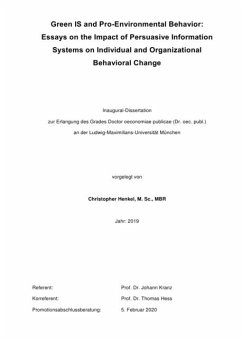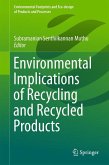Climate change and environmental pollution are grand challenges of our time (Melville 2010; Seidel et al. 2017). The United Nations Framework Convention on Climate Change (2018, p. 1) states that "climate change presents the single biggest threat to sustainable development everywhere and its widespread, unprecedented impacts disproportionately burden the poorest and most vulnerable." Thus, to achieve the United Nation's Sustainable Development Goals, such as responsible consumption and production and sustainable cities and communities, urgent action to curb carbon emissions is crucial. To address these challenges, individuals, organizations, and societies need to adapt to more eco-sustainable behavior (Elliot 2011).
A key building block of improving individual and organizational sustainability is pro-environmental behavior (PEB). Following Stern (2000), PEB comprises all behaviors that reduce the use of collective and limited natural resources, halt global warming, and protect the biosphere. To support behavioral change towards PEB, Green Information Systems (Green IS) can help eco-sustainable practices to emerge and diffuse (Kranz et al. 2015; Watson et al. 2010). Green IS includes information technologies (IT), people, processes, and software to "support individual, organizational, or societal goals" (Kranz et al. 2015, p. 8). There are three effects of Green IS on environmental sustainability (Kranz et al. 2015). First, the decrease of negative environmental impacts on IT itself; Second, the enabling effects of Green IS that help individuals and organizations to act more pro-environmental; Third, medium- and long-term changes of economic structures and behaviors towards more eco-effective practices. In this dissertation, I examine the impact of Green IS for the second and third order effects on the organizational and individual level.
A key building block of improving individual and organizational sustainability is pro-environmental behavior (PEB). Following Stern (2000), PEB comprises all behaviors that reduce the use of collective and limited natural resources, halt global warming, and protect the biosphere. To support behavioral change towards PEB, Green Information Systems (Green IS) can help eco-sustainable practices to emerge and diffuse (Kranz et al. 2015; Watson et al. 2010). Green IS includes information technologies (IT), people, processes, and software to "support individual, organizational, or societal goals" (Kranz et al. 2015, p. 8). There are three effects of Green IS on environmental sustainability (Kranz et al. 2015). First, the decrease of negative environmental impacts on IT itself; Second, the enabling effects of Green IS that help individuals and organizations to act more pro-environmental; Third, medium- and long-term changes of economic structures and behaviors towards more eco-effective practices. In this dissertation, I examine the impact of Green IS for the second and third order effects on the organizational and individual level.








